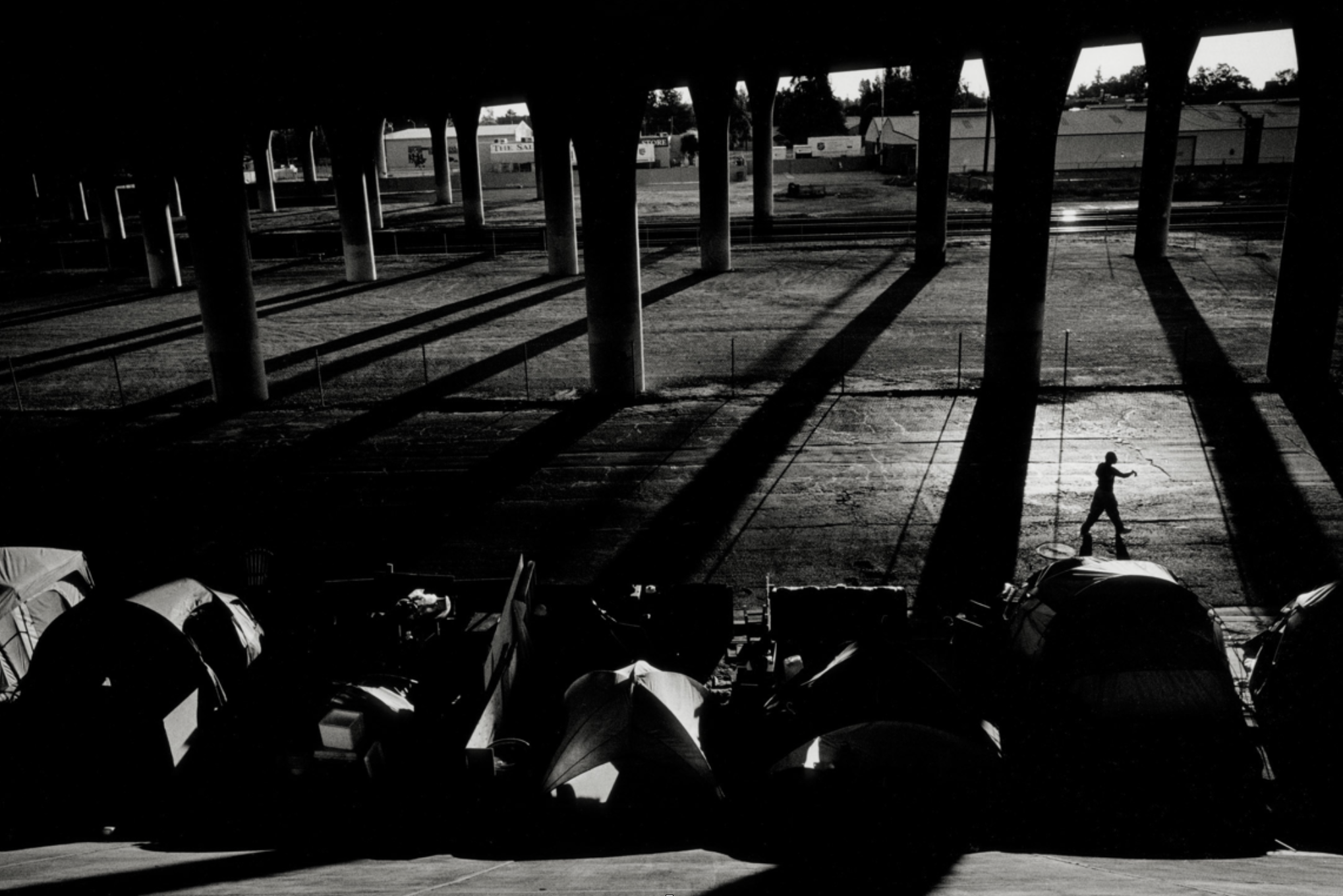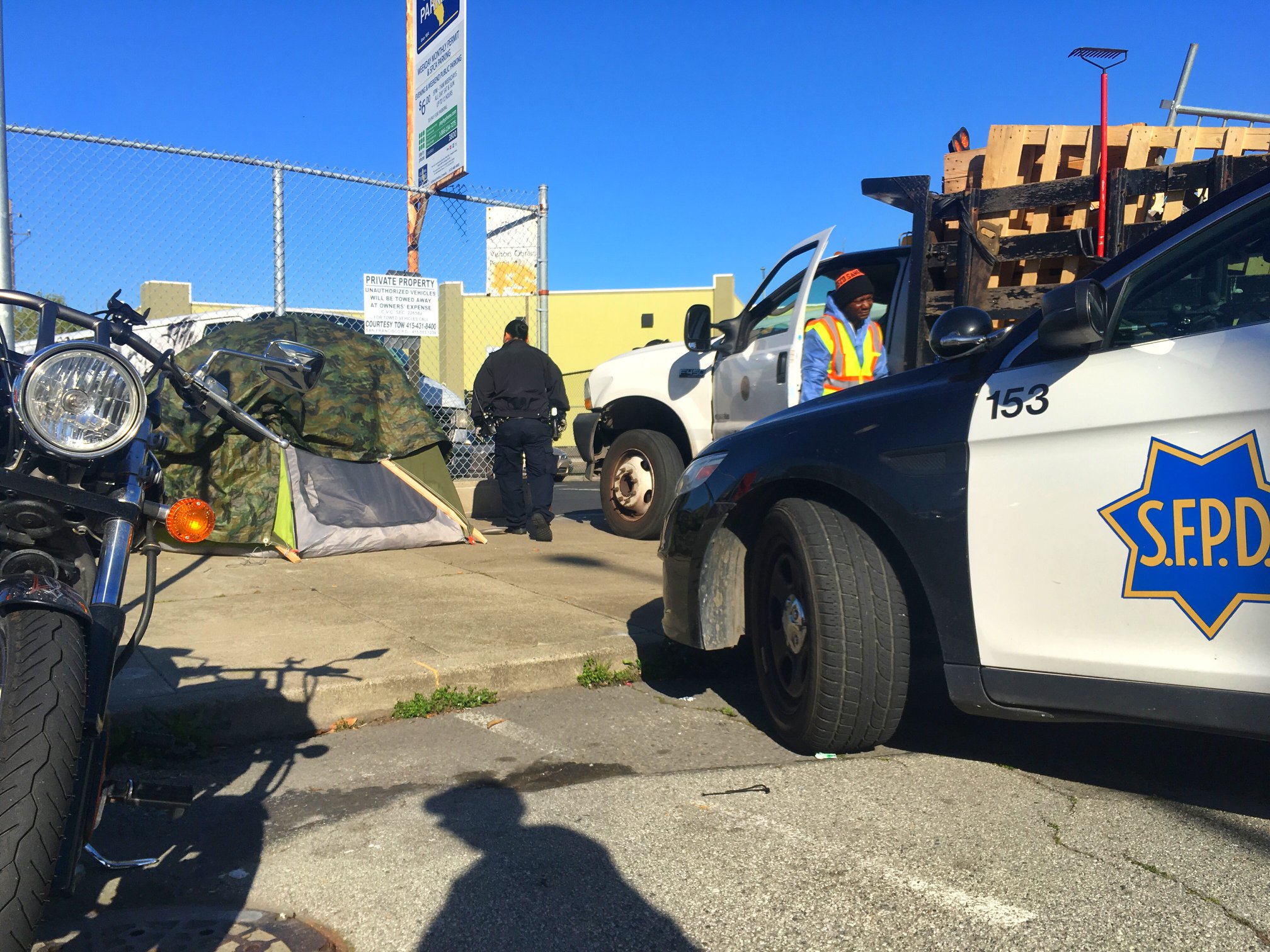
Chris Herring is an Assistant Professor of Sociology at the University of California Los Angeles.
His research focuses on poverty, housing, and homelessness in US cities. Chris’ work has been published in academic journals including the American Sociological Review, Social Problems, The Annals of the Academy of Political and Social Sciences, City and Community, City, Teaching Sociology and book chapters in edited volumes of Anthropology, Urban Studies, Social Movements, Geography, and Community-based Research. Chris is currently working on his first book under contract with University of California Press - an ethnography of the criminalization of homelessness in San Francisco. He is also working on a study with Professor Sandra Smith of Harvard on the perceptions and experiences of people with criminal records with Ban the Box employment policies.
His writing has appeared in the Washington Post, Places, Progressive Planning, Shelterforce, the Berkeley Journal of Sociology, and homeless street newspapers across the US and Canada. Chris research and commentary has also been featured in the LA Times, NY Times, UK Guardian, Al Jazeera, the San Francisco Chronicle, Bloomberg’s City Lab, and other outlets.
Chris' research, writing, and teaching embraces the ideals of public sociology. He has co-directed two participatory action research projects and publications with the San Francisco Coalition on Homelessness, where he organized with the Human Rights Working Group. Chris also served as a researcher at the San Francisco’s Mayor’s Office of Homelessness. He has collaborated on research with the National Coalition on Homelessness, Anti-Eviction Mapping Project, the Western Regional Advocacy Project, and ACORN. Chris regularly consults with county governments, think tanks, and legal aid groups.
Chris teaches undergraduate and graduate courses in Urban Sociology, Poverty, Punishment and Society, and Ethnographic Methods.
Before coming to UCLA, Chris completed a Postdoctoral Fellowship at Harvard's Inequality in America Initiative, and earned a PhD at UC Berkeley Sociology, an MA in Social Anthropology at Central European University, Budapest and a BA in Economics from Bard College. He also worked as a Project Manager in New York City’s Department of Housing Preservation and Development.
Research
Cruel Survival
My current book project, Cruel Survival: Policing and Punishing the Unhoused in the American City (UC Press) examines the causes, practices, and consequences of criminalizing homelessness in the contemporary metropolis. Through ethnographic observations both embedded in encampments and with the city bureaucrats that manage homelessness, the book provides a panoramic and relational account of the political, economic, and cultural forces behind the passage of anti-homeless laws, their enforcement, and impact on homelessness, poverty, and the city. Although San Francisco and other progressive cities appear to be moving away from the failed “tough on crime” policies of the past, Cruel Survival reveals how without adequate investments in the social safety net, police and judicial reforms can reproduce similar punitive outcomes that perpetuate poverty.
Precarious Shelter
My second book project, Precarious Shelter: Homeless Seclusion and Survival is an ethnography of the shelters and homeless housing programs in San Francisco. The book examines the uneven access of entry to shelter and housing first programs and why so many return to homelessness and the streets. The first part traces how state agencies, non-profits, and philanthropic actors determine deservingness in prioritizing the distribution of scarce beds, vouchers, units and their conditions of use. The second part documents how those unhoused succeed and fail to gain entry and why others resist, how people manage life once inside, and the circumstances of their exits.
Mass Homeless Encampments
Since the turn of the 21st century several US cities have witnessed the resurgence of large-scale homeless encampments. This page includes research papers, essays, and reports explaining why such encampments emerge, how they evolve, and why some are evicted and other legalized. Drawing on interviews and observations in 12 encampments in eight municipalities, these papers demonstrate how large-scale encampments paradoxically serve as both tools of containing homeless populations for the local state and preferred safe grounds for those experiencing homelessness.
Employment after Incarceration and Fair Chance Employment Policies
Under Professor Sandra Smith, I'm managing a survey and interview study exploring the impacts of Fair Chance Policies like Ban the Box on the perceptions and experiences of those formerly incarcerated.
Disaster and the Housing State
After the flooding of New Orleans pre-existing inequalities of class, neighborhood, and race were exacerbated due to an uneven recovery. These sets of writings argue that at the heart of this uneven recovery is housing and uncovers the various ways local, state, and federal urban policies privileged homeowners at the expense of renters.
Community-Based Research
CART - An Alternative to Policing Homelessness
The San Francisco Police Commission unanimously passed a resolution in January of 2020 calling for a more effective response to homelessness be developed that would eliminate the use of police officers as a first and primary response. Over 50 participants including city officials, community organizations, mental health consumers, people with lived experience with homelessness, service providers, advocates and academics worked to envision a new approach and published a community-based plan. Acknowledging the promise of such a program, the Board of Supervisors placed $2 million in reserve during the latest budget process to seed this yet to be determined program.
SF Homeless Needs Assessment
In 2018, A ballot proposition to tax .5 percent on annual gross receipts over $50 million with funds earmarked toward helping the homeless passed with 60% of the popular vote in San Francisco. This amounts to more than $300 million additional funds each year to help end homelessness in San Francisco. To guide the spending of this new funding, the Our City Our Home Coalition funded a community-based study to assess the needs of homeless individuals regarding homelessness prevention, shelter, mental health services, and substance use treatment
SF Criminalization Study
This community-based study documents and analyzes the impacts of the rising tide of anti-homeless laws on those experiencing homelessness in San Francisco. In collaboration with the San Francisco Coalition on Homelessness, and Dilara Yarbrough of SF State this report presents findings from a citywide survey of 351 homeless individuals and 43 in-depth interviews.
COVID-19 and Homelessness
From the onset of the pandemic in March, 2020 through August I worked full-time with advocates and officials on the COVID-19 response to homelessness in San Francisco. Included on this page are presentations, reports, opinion pieces, policy recommendations, commentary in the media, and proposed legislation that I participated in.









